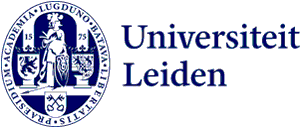City of The Hague/ Port of Scheveningen: Coastal Challenges
The Port of Scheveningen invites student researchers to work on the diverse spatial engagements. How can the uses and interpretations of ‘space’ by different stakeholders create a foundation for the development of sustainable development in line with the UN SDGs?
Coastal Challenges: Fishing, tourism and climate change in Scheveningen
Scheveningen, located on the coast of the North Sea, has a long history as a fishing village. Over the last couple of decades, this industry has declined, transforming occupations, and changing people’s dependency on the sea. As a coastal place, Scheveningen is at the forefront of climate change related challenges, which involve water system change, migration and shipping. Various governmental and non-governmental stakeholders are currently engaging with these economic, ecological and societal challenges, with the ambition to promote sustainable development. Based on research to be conducted, this includes spatial planning for port and city through participatory processes. Like many coastal cities, The Hague, the municipality which Scheveningen belongs to, has had its back turned to the sea for many decades, resulting in the Port of Scheveningen being in danger of losing its maritime connections and mindset. The Port of Scheveningen invites student researchers to work on the diverse spatial engagements. How can the uses and interpretations of ‘space’ by different stakeholders create a foundation for the development of sustainable development in line with the UN SDGs?
Maritime Mindsets for shared values
Exploring ongoing planning discussions, stakeholder participation and discovering shared values requires ethnography to facilitate the development of approaches for circularity. Planning processes can benefit from careful assessment and local participation. Together with the City of The Hague and the Port of Scheveningen, PortCityFutures engages with local partners to develop shared values that can serve as a guidelines for policy making.
Students will work with the City of the Hague/the Port of Scheveningen/PortCityFutures initiative, and the UNESCO Chair Water, Ports and Historic Cities to research maritime mindsets as the foundation for spatial planning initiatives. Their projects will build upon the research currently being developed by involved staff. Interdisciplinary collaboration with students and staff from other Leiden-Delft-Erasmus faculty is also possible and can provide opportunities to engage with future-oriented design projects.
These research internships are being offered by the LDE-PCF Thesis lab, which is based in The Hague. The PCF thesis lab has been created in answer to the need for student research by the municipality of The Hague/Scheveningen. Whereas the municipality is committed to support students in providing access to (initial) contacts, the PCF Thesis lab will bring students from different programmes and across the three LDE universities together to share to progress on their separate research projects.
